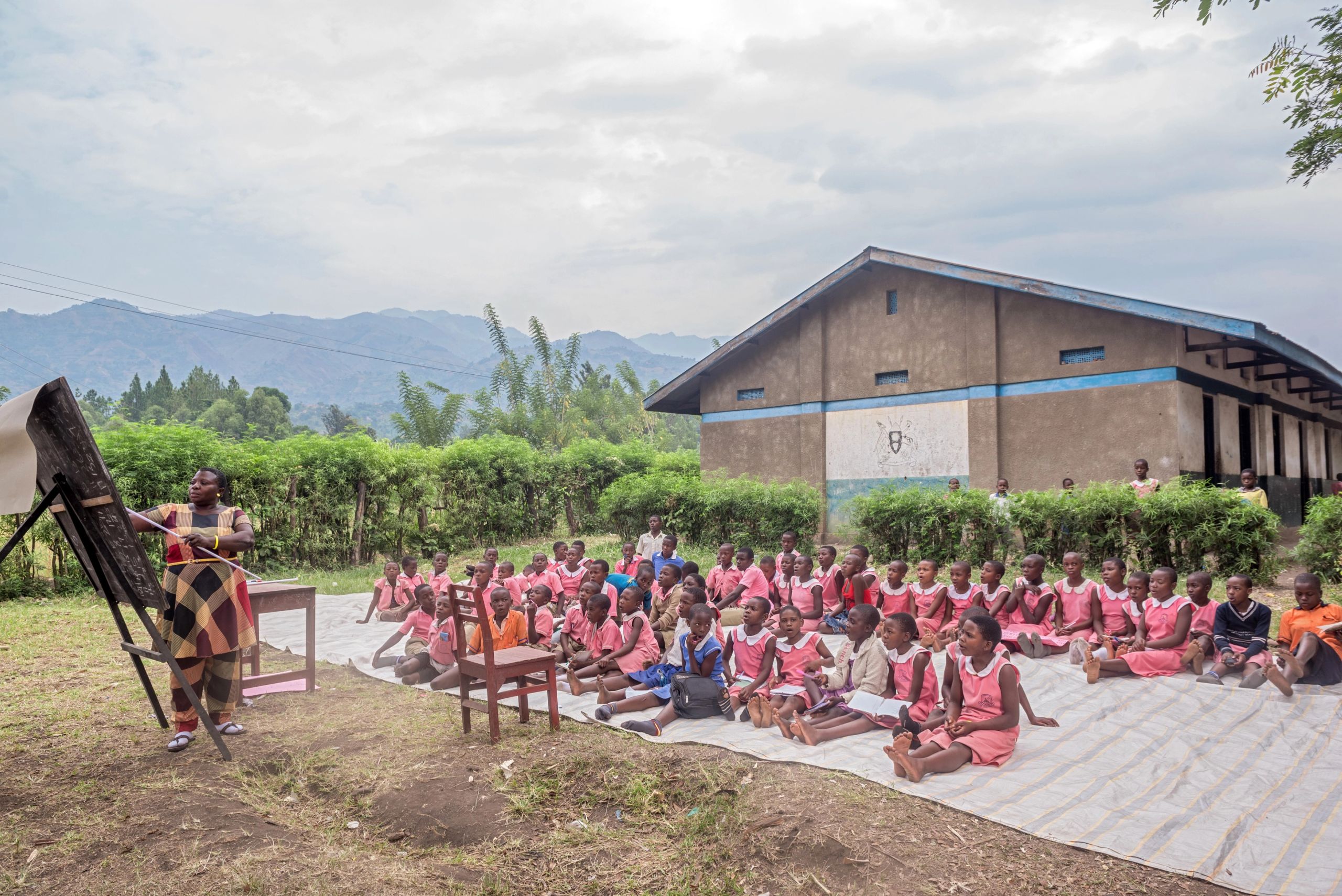Blog
Education

Over the past 10 years, we have invested USD 75 million in education, reaching more than 1.4 million children. Our journey has been shaped by continuous learning and a commitment to refining our approach to maximise impact. We remain deeply committed to supporting every child’s opportunity to learn — no matter where they are born. Here’s how we aim to accelerate progress even further.
By Anders Holm, CEO of the Hempel Foundation
Imagine not being able to read the label on your child’s medicine. Not understanding a voting leaflet before casting your ballot. Struggling to follow basic written instructions at work, or being unable to do simple math at your local market. These are daily realities for millions of people around the world.
Foundational skills are the building blocks of all learning. First you learn to read — then you read to learn.
Quality education is perhaps the most powerful enabler of sustainable development. Yet the world is in the midst of a learning crisis. In low-income countries, nearly 9 out of 10 children are unable to read and understand a simple text by the age of 10. Without foundational literacy and numeracy skills, children cannot progress in their education or contribute meaningfully to future economic growth.
Over the past few years, I have visited many classrooms in low-income countries. I’ve met teachers who are deeply motivated to pass on knowledge but who lack even the most basic tools to do so — often working with classes of 60 to 80 students. And I’ve met even more students who are eager to learn but who have not yet cracked the code of reading.
So how do we solve this challenge in the most cost-effective way? That is a question we are passionate about — and committed to help answering.
That is why education has been the Hempel Foundation’s longest-standing strategic focus area. Over the past 10 years, we have invested USD 75 million in education, reaching more than 1.4 million children.
The Case for Investing in Foundational Learning – and What Works
The case for investing in children’s foundational learning is very strong.
According to UNESCO, every dollar spent on education can increase a country's GDP by an average of $20 — with primary education offering the highest return. Emerging evidence suggests that for every dollar invested specifically in foundational learning, there is a potential return of $30 in economic benefits in low-income countries.
These figures highlight the substantial economic value of investing in education, making it one of the most effective strategies for advancing sustainable development.
However, solving the learning crisis isn’t just about increasing funding. If we truly want to accelerate progress in foundational learning, we must use existing resources more effectively and support governments in scaling solutions that are proven to work. We must invest in what works and where each dollar yields the greatest improvement in learning outcomes.
Our Strategy
While we recognize that the learning crisis is a global issue, we focus our efforts where it is most acute — in Sub-Saharan Africa and South Asia.
Our strategy has two core objectives:
Objective 1: Increasing the Supply of Scalable Solutions
To expand the supply of cost-effective learning solutions, we partner with highly specialized education organisations that have strong potential to scale. These partners fall into two categories:
Scaling partners: Organisations with proven models, government relationships, and the capacity to scale through public systems.
VVOB is an example of a scaling partner. In Zambia and Uganda, VVOB works closely with governments to embed the Catch-Up programmes into national systems. Based on the evidence-driven Teaching at the Right Level methodology, these programmes are designed for scalability and are now being adopted as part of national strategies. These programmes target children who have fallen behind and are tailored to their current level of understanding.
Acceleration partners: Smaller, often locally-led organisations with high potential for impact that can scale more rapidly with targeted support beyond grant funding.
To support our acceleration partners, we’ve teamed up with Global Schools Forum to co-develop the Impact Accelerator Programme, launching later this year. This initiative is designed to strengthen organisational capabilities in fundraising, government engagement, and impact measurement tailored to each organisation’s needs.
Objective 2: Enhancing Government Demand
To strengthen government demand for cost-effective foundational learning solutions, we work with regional and global partners to improve the quality of data and evidence available to decision-makers.
Better data enables governments to identify gaps and invest strategically in what works. One example of our work is the Foundational Learning Action Tracker (FLAT), launched with UNICEF in 2023. FLAT supports governments in making informed, data-driven decisions. It is built on the RAPID framework, which outlines five high-impact, evidence-based actions to improve foundational learning at scale — such as measuring learning regularly and providing structured pedagogy.
Later this year, the third round of data on government progress will be released, offering valuable insight into how countries are following up on their commitments. This information will be key to helping governments and their partners prioritise efforts with the greatest return on investment.
What’s Next
By investing in cost-effective solutions and supporting governments to act on data and evidence, we can help ensure that every child — no matter where they are born — has the chance to learn, grow, and thrive.
We’re excited to continue this journey, together with our partners, to help close the global learning gap and unlock the potential of millions of children.
For more about our work on Education.